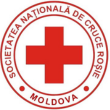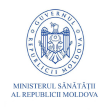Organizații vizate:
Anunțuri de Angajare
- Detalii
- Categorie: Angajări
Terre des hommes Moldova is seeking a national researcher, to be part of regional team of researchers working on a regional research on supervision
Informațiile prezentate în articolul de mai jos pot să nu mai fie actuale sau să nu mai reflecte activitățile și programele curente. Anunțul este păstrat în arhivă pentru a asigura transparența și accesul public la informațiile despre inițiativele și proiectele implementate anterior.
Terre des hommes Moldova is seeking a national researcher, to be part of regional team of researchers working on a regional research on supervision of social workers and other core workers working in integrated and multi-disciplinary teams setting in child protection,
Project title: Child Protection Hub (ChildHub)
Country: Moldova
Name of organization: Terre des hommes Moldova
Type of contract: Consultancy
Timeframe of engagement: January to March 2022
I. Introduction to the Child Protection Hub
The Child Protection Hub (in short ChildHub) is an interactive and innovative network of child protection professionals in Central, East and Southeast Europe. ChildHub promotes the sharing of knowledge and good practices, offers specific professional trainings and skills development opportunities and informs and advocates with policy-makers to influence policies and practices related to child protection. ChildHub ensures a space for constant learning and communication with the opportunity for professionals to become part of a strong regional community of practice. The online platform of ChildHub is available in nine languages and is open to a range of professionals from social and healthcare workers through justice and law enforcement professionals to policy-makers. ChildHub conducts activities in Albania, Bosnia and Herzegovina, Bulgaria, Croatia, Hungary (only project coordination work), Kosovo, Moldova, Romania and Serbia. The project is coordinated by Terre des hommes` Regional Support Hub Budapest (located in Hungary), with dedicated local project associates/coordinators in Terre des hommes country offices in Albania, Kosovo, Moldova and Romania, and in the external partner organizations of Brave Phone in Croatia, the Center for Youth Integration in Serbia, the Know-How Centre for the Alternative Care of Children of the New Bulgaria University, and Save the Children North-West Balkans in Bosnia and Herzegovina. ChildHub`s overall objective (as a long-term vision) is to contribute to the realization of children`s fundamental rights across the region, in particular the right to be protected from abuse and violence. ChildHub`s midterm objective is to contribute, together with child protection actors, to a functional child protection system and exert influence on the development of policies, structures, and accountability mechanisms for child protection.
In Moldova ChildHub project is implemented by Terre des hommes Moldova.
II. Background and context of the research on supervision
Issues of child protection are very complex, difficult and often overwhelming to deal with for front line professionals in every context. Learning from supervised practice is an essential component of the education and training of frontline workers (members of multidisciplinary teams) in direct work with children and families in risk. Supervision is the “cornerstone” of a good practice for these professionals and is geared toward efficiency, accountability, professional standards and high performance of workers. Professional supervision is key as it enables both supervisor and supervisee to reflect on, scrutinize and evaluate the work carried out, assessing the strengths and challenges of the practitioner by providing coaching and mentoring. Research has demonstrated that provision of supervision is associated with job satisfaction, commitment to the organization and overall wellbeing. Also, research shows that in an inter‐ professional context, workers relate job satisfaction and professional development to their supervisor’s expert knowledge, regardless whether they share the same professional background (Carpenter et al,2012). The emotionally charged nature of work can place particular demands on school psychologists, school social workers, child protection workers, health workers, police officers and it is important to provide opportunities for reflective supervision oriented to case management, problem solving, emotional support and quality of their work in addressing issues of child abuse, neglect etc. Professional supervision is an important source of advice and expertise and may be required to endorse judgments at certain key points in time for professionals dealing directly with cases on their day-to-day practice, and identify the factors who promote or hinder the multidisciplinary teamwork. Through this process, supervisors should also record key decisions within the child’s case records.
Practice and research show that in the field of social work and education there is a need of different types of supervision: organizational, team support, clinical support for better understanding of the children/family behavior patterns, emotional support for the practitioners working directly with children and families etc. Supervision is both educative and supportive and facilitates the supervisee to explore their feelings about the work and the family. Effective supervision related to issues of child protection needs to be regular and provide continuity, so that the relationship between supervisor and supervisee develops.
In Moldova the practice of supervision in social assistance has developed over the last ten years based on the intention to contribute to the solution of several problems, including understanding of the professional/beneficiary relationships, continuous improvement in the professional level, improving the welfare practices offered to the various social categories, monitoring / evaluation of the professional activity process. This practice is regulated by "The Mechanism of Professional Supervision in Social Assistance" which aims to improve the professional supervision process and broaden the coverage of professional support needs for staff providing social assistance, including community based social assistants and social workers.
III. Objectives of the research
In spite of all of these, there is a need to further develop and deepen knowledge, skills and practice in the field of supervision. There is a need to explore the different understandings, needs, standards, challenges of supervision faced by social workers and other social care workers involved in the multidisciplinary case management work.
Also, there is a need to establish professional supervision as a prerequisite to quality services within the practice of child protection, for multidisciplinary team members. Such need has come naturally in a from the field where such practice is almost inexistent and when there is an increased focus on child protection issues.
In this context, the Child Protection Hub seeks to conduct a regional qualitative research to explore the different understandings, needs and standards, factors hindering or promoting supervision mostly involved in the multidisciplinary case management work. Such research will target members of multidisciplinary teams and other responsible structures for offering and ensuring close professional supervision for child protection workers, school psychologists/social workers and other multidisciplinary teams’ members.
The research aims to answer primary research questions to achieve the following objectives:
- To provide a snapshot of supervision for social workers and other social care workers in the multidisciplinary team setting in child protection for 8 countries Areas: multidisciplinary work (social assistance, education, health, police)
- To explore the attitudes, behaviors and perceptions of social workers and other workers working in an MDT context regarding supervision
- To identify key factors that hinder and promote supervision practices in the multidisciplinary teams’ contexts
- To provide a comparative analysis in the region
- To identify good practices in supervision
- To provide recommendations for strengthening supervision across the region and specific countries
In order to conduct this regional research, ChildHub is looking for highly professional National Researcher, to conduct research in Moldova, following a harmonized methodology, under the guidance of Regional Lead Researcher.
IV. Responsabilities:
1) Attend introductory workshop (3 hours) and weekly meetings with lead researcher
2) Work Package 1:
- Locate and obtain relevant policy documents in relation to supervision for their own country.
- Analyse these documents by identifying key aims, intended outcomes and practice guidelines for supervisors.
- Recruit a minimum of five key informants (from Centers of social work, law enforcement, prosecution, education, health, NGOs) to be interviewed, and to undertake and audio-record these interviews.
3) Work Package 2:
- Access academic literature on supervision and use this, alongside the document analysis and key informant interviews, to help generate statements for the Q-study.
- Recruit a minimum of 15 participants (ideally from 3 locations and from different types of institutions) to complete an online survey and the Q-study.
- Recruit a minimum of three key informants to be interviewed about the results of the Q-study, to ensure validity of the conclusions.
4) Other
- Management and handling of all research data collected – and secure transfer to Cardiff University
- Review draft sections of final report
- Draft and finalise national report – in consultation with the ChildHub associate and her organisation
IV. Timeline
January 2022
- Obtain ethical approval for the study from the School of Social Science ethics committee.
- Kickoff meeting with lead researcher and all local researchers 24 or 25 January 2022
- Development of the Q-method study and design and testing of the survey.
February 2022
- Work package one – desktop review and qualitative interviews with key stakeholders.
- Work package two – online survey and Q-method study.
- Results from the survey and Q-study to be analysed as the data become available
March 2022
- Submission of inputs to lead researcher
- Draft regional report to be submitted to the funder (by 17th March) for comments and amendments.
- Draft national report to be submitted to ChildHub (by 20th March) in English
- Draft regional report to be amended based on comments from the funder (between 24th and 30th March)
- Draft national report to be submitted to national partner
- Final regional and national reports to be submitted to the funder (by 31st March)
- Presentation of country findings at a ChildHub regional online conference (late March)
Conditions
The consultant will be expected to work from its current location and attend virtual meetings in support of research activities. The consultant will be expected to work 10-15 days until March 2022.
Profile
- Demonstrated knowledge and experience in child protection/ child rights, supervision, and development of a welfare system for children
- Research experience, and publications in the field of child protection, child welfare
- Sound knowledge of research methodologies
- Proficiency in English both in writing and orally
- Ability to work with an international team of researchers
- Very good writing skills
- Ability to work with tight deadlines
- Have strong interpersonal skills
V. To Apply
Please submit the following information to veronica.pelivan@tdh.ch
- An updated CV
- List of relevant publications
- Price Offer: with a detailed line-item budget, indicating costs in EUR. VAT should also be indicated if applicable, separately
- References to previous, similar work done
The applications will be submitted in English language no later than 16 January 2021. Please refer to the service you are applying to in the subject section of the application e-mail.
Please note that only the selected candidates will be contacted. Any application received after the deadline will not be considered.
---- The Child Protection Hub is a regional initiative providing knowledge and capacity building as well as networking opportunities for thousands of child protection workers in South East Europe.
- BNM angajează Expert principal în domeniul relațiilor internaționale
- Prelungit Oficiul Național de Implementare a Proiectelor de Mediu organizează concurs pentru ocuparea postului de Contabil Șef
- National Legal Expert for Drafting the Law on Renewable Energy
- Instituția Publică Centrul Național pentru Energie Durabilă anunță concurs pentru ocuparea funcției vacante de specialist principal în cadrul Fondului pentru Eficiență Energetică în sectorul Rezidențial din Moldova
- Centrul Național de Prevenire a Abuzului față de Copii (CNPAC) angajează psiholog/ă în cadrul Centrului de asistență și reabilitare psihosocială a copilului și familiei AMICUL
Angajări pe Telegram
Nu pierdeți niciun anunț de angajare postat pe site! Urmăriți Canalul dedicat pe Telegram:

Top organizatii
2025 CIVIC DIGITAL SOLUTIONS
Email: support@portal.civic.md








